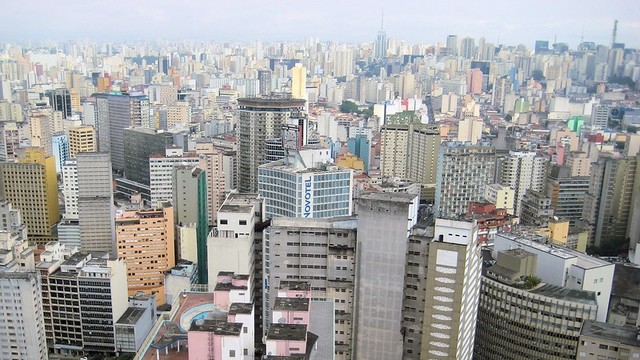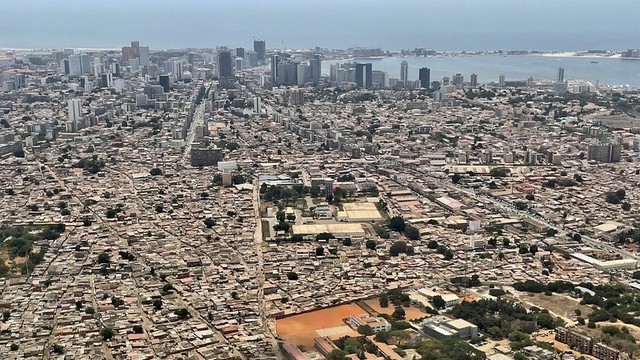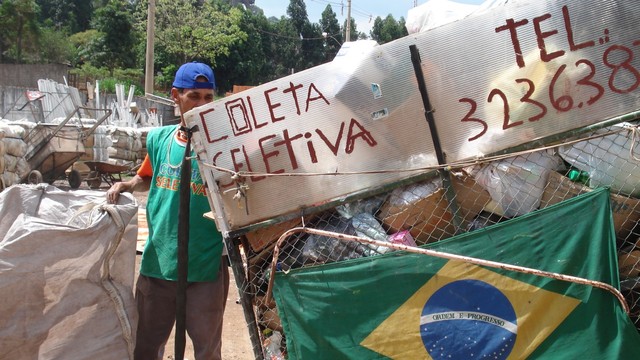Lobbying for land then and now: reflections on what changed in Karachi
With affordable land a pipe dream for the urban poor what, if anything, has changed in the last 50 years, and what lobbying tactics are the most – and least – effective?


City view of Karachi. Civil organisation and lobbying for land in Karachi has changed significantly over the past decades (Photo: Usama tayyab via Unsplash)
In the mid-1970s, I had the privilege of working with Ghulam Kibria. He was a much-celebrated Pakistani engineer and founder of the Pakistan Appropriate Technology Organisation.
Ghulam was obsessed with roofs. He always said that any idiot can put up proper walls using the skills of a reasonable mason, but to design a roof that is affordable, insulated and which can carry the weight of the cots used for sleeping on summer nights, required special skill. So this, along with affordable sanitation, was his obsession.
But Ghulam Kibria had other issues on his mind. One evening, after a day's work, we were in a tea shop in the Orangi industrial area, and he said to me: “Arif, we can design the most affordable of roofs, but that will not solve the housing problem of the millions of homeless in Pakistan."
When I asked him what would, he replied: “Only affordable land can do it. It will not happen in my lifetime, but it might in yours. The question is how do you make land accessible to the poor when it is controlled by capitalists and feudal lords?”
Lobbying for land in the 1970s
In those days there were no such things as NGOs or civil society organisations. However in the settlements we worked in, there was a lobbying process that was very different from the processes employed today.
The de facto leader of the settlement – let’s call him ‘X’ – who in most cases was also the informal developer of the settlement, usually hired a journalist to report on the terrible conditions that existed (no electricity, no water, no drainage, no transportation and lots of impoverished people). Once this was published, he took the news cutting to the existing and prospective elected representative of the area, or to a senior bureaucrat – let’s call him ‘Y’ – and invited Y to visit the settlement. He also promised the support of the community to Y in the political process. The journalist was usually paid in the form of a plot in the settlement.
When Y visited, the entire community came out to greet him. He was garlanded, a poem in his praise was read out at the gathering, and promises to support him were publicly made. If things went well, X also made a promise to name the settlement after Y. This offer was very difficult to refuse, and because of it, many settlements in Karachi are named after politicians, bureaucrats and the owners of the land on which they are located.
If the promises made by Y were not kept, a group of five to six people visited his office many times to remind him of the promises he had made. If there was no action taken as a result, there would be a large demonstration in front of the offices of Y – which could sometimes become violent.
As a result of the anger generated, there would be negotiations, and some of the demands of the citizens of these settlements would be met and cordial relations reestablished.
Lobbying for land today
Today the situation is very different. NGOs are looking for communities to support. They are funded either by Pakistani philanthropists or by large national and international NGOs or international financial institutions (IFIs).
The large NGOs receive considerable funds and employ ‘highly-qualified’ staff on salaries that are often many times higher than local rates. They may have respected senior citizens on their boards and they function like a corporate sector organisation. Their employees are often on the lookout for better opportunities, so staff turnover is high in many of them and has a negative impact.
If funding is stopped or curtailed, the organisations have immense problems, and are sometimes forced to close down part of their activities, or to change their objectives to adjust to the demands of new donors.
Smaller NGOs and organisations are often dependent on the larger NGOs for funds, advice and lobbying. The larger NGOs carry out research and prepare accounts (which the smaller NGOs may not know how to do, but which are increasingly required by donors), and represent the interests of the community at meetings with officialdom.
When these smaller NGOs or community organisations shut down due to lack of funds, some of their ex-employees may come together and form another community organisation, get it registered, and look for modest funds to continue part of the work they were doing earlier.
However, such funds are not reliable. Despite this, the advantage of this process is that the communities' problems get well-researched and their knowledge about themselves increases. This knowledge is used in negotiations with the state, and often it is the staff of the funding NGO that carries them out with the local government representatives or with politicians. Often, the representatives of the NGO can act as intermediaries, and this helps the discussion in favour of the community.
Reflections on this new form of lobbying
This new form of lobbying, with the NGO being the middle person, dominates the lobbying process in Pakistan. Ghulam Kibria was very much against it. He used to say: “This manner of poverty alleviation will not work. It has made not only our people dependent on outsiders but has also turned them into beggars, just like the Pakistani state. Now there is no conversation between people and the state.”
However, he was wrong, for there are a few cases where conversations have taken place and the communities have gained as a result – but this is rare and is not increasing.
The two forms of lobbying have been a subject of debate and discussion among smaller NGOs. There are those who feel that when there were no NGOs, entire communities would participate, presenting their claims and protecting their gains – in a process that brought people together. They also argue that apart from the communities, the new representatives do not know what claims to present and what gains to protect.
At academic institutions, the new model of ‘empowerment’ is followed. Ghulam Kibria used to say that this new model was schizophrenic. In the settlements, its culture is an attempt at being working class. Whilst in its negotiations with the establishment, its culture is that of the elite (with workshops and conferences at posh hotels and beautiful locations).
It also produces a ‘development-promoting elite’ which is becoming a class in its own right. This obstructs innovation, but new academic research and teaching are promoting the existing model. The opponents of the present model feel that pragmatism, which can sometimes be cruel in nature, will eventually replace love and affection. And class differences will be more, not less, marked.
The discussion on the effects of this potential disconnect should continue – especially in academia.



